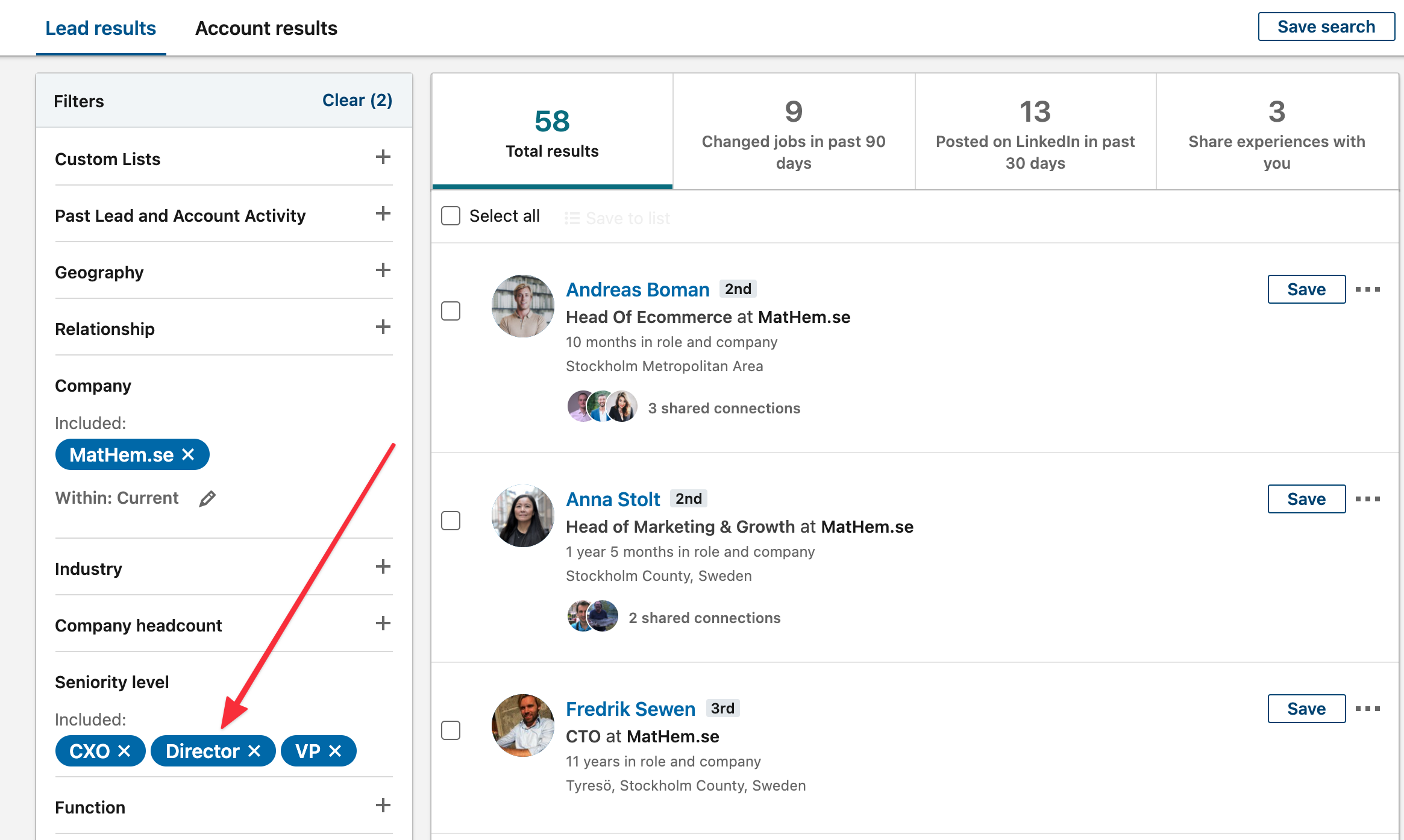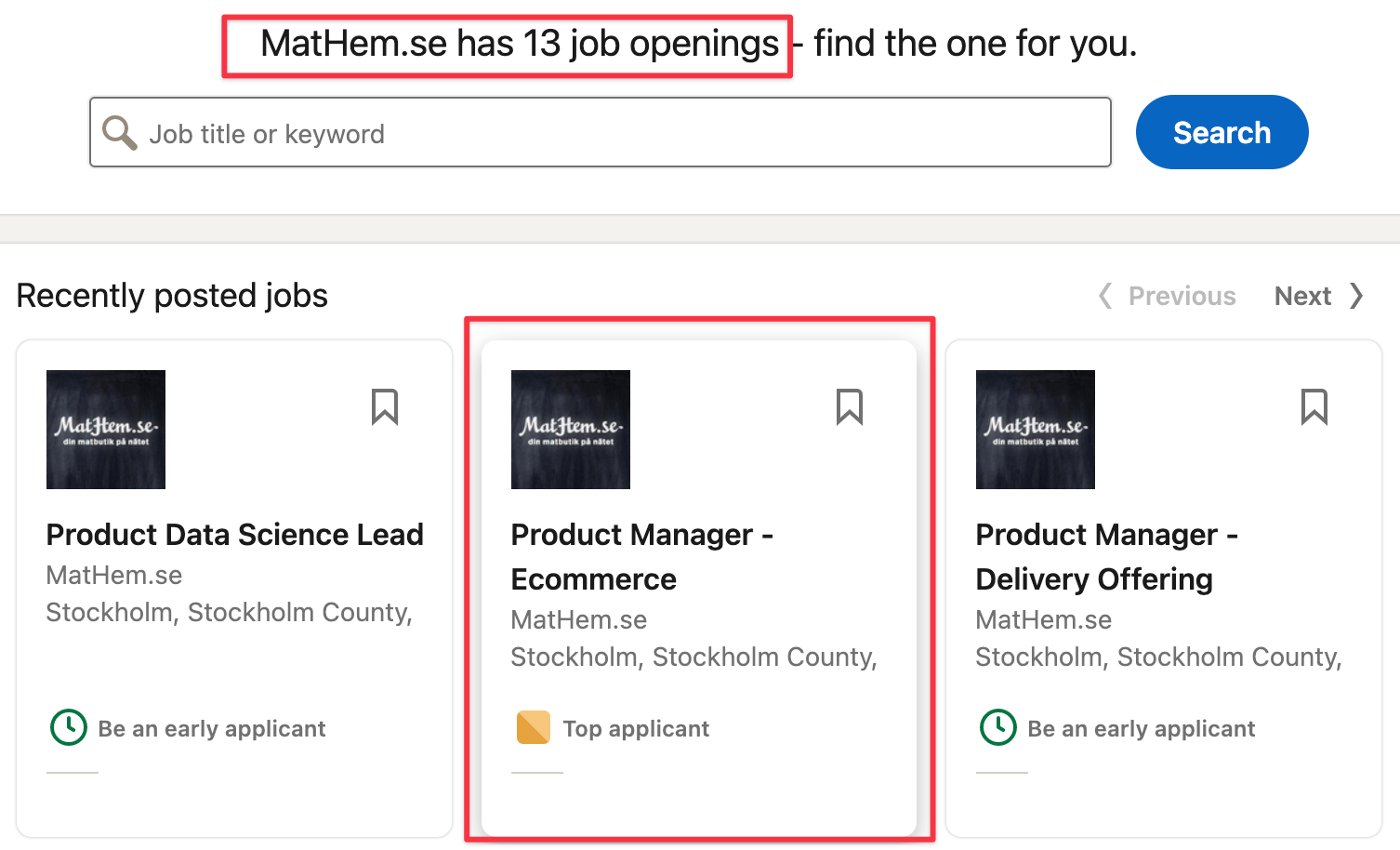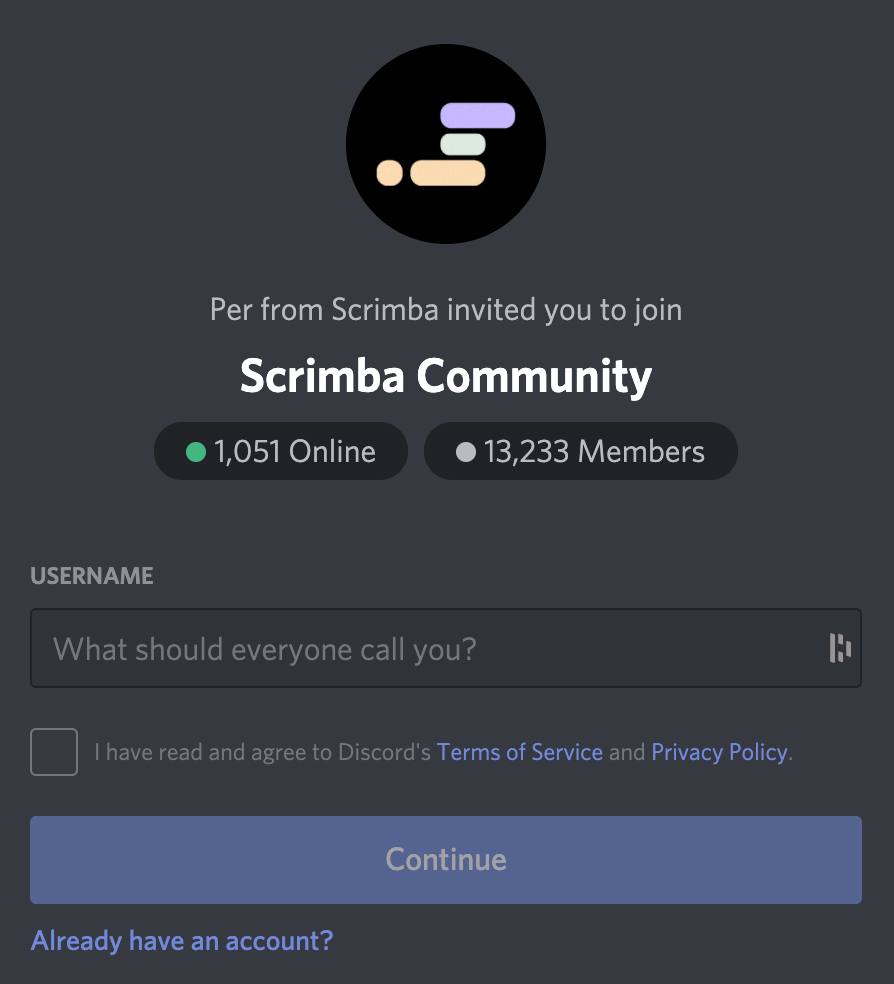How to grow a B2B company. A real-life example from Norway
When hiring marketers, a common trick I see recruiters use all the time is to ask the candidate:
You have $100k dollars. How would you grow this business?
It's a good question: it sheds some light on the candidate's thinking process, their creativity and familiarity with numbers. Also, the constraint forces them to prioritise what needs to be done. When interviewing for two separate positions at two different companies, I did ask this very question myself.
At the same time, it is a very convenient question to ask, especially if your company is small and lacks a structured Marketing team. Getting some insights from outsiders with a supposedly solid experience is a great way to put together a plan of action for the next few months. Get 4 or 5 candidates to share what they think you should do and - voilà - you've got some action points in your ToDo list.
I have recently been talking with two leaders at a B2B company and this question came up again, so I figured I could write about it. In fact, I will pick a B2B business and propose what they should do to grow their business. I will use my fiancée Hanne's business as an example: she has cofounded Skillhus, a recruiting and consulting company focusing on diversity and inclusion.
As with everything, your mileage may vary depending on your industry, location, customers, etc. but I argue this step-by-step guide will give you everything you need to build a process to find out what to do. If you find it valuable, or have a question, drop me a line: I am always happy to hear from you. Let's go 👋
Characteristics of the business
Skillhus is a recruitment and consulting agency focused on diversity, equity and inclusion (DEI). It's a small business based in Oslo, Norway, with no full-time marketers.
Their business model is based on two major revenue streams:
- Recruiting: they specialize in recruiting international talent for Norwegian companies.
- DEI consulting: they offer training and development in the area of Diversity, Equity and Inclusion. They offer workshops and training & development to companies seeking to improve their diversity game.
Recruiting
The business here is fairly straightforward: they talk to companies, get a mandate to recruit someone for a specific position, and handle the sourcing of the candidates and the interview process: if the recruitment process ends successfully, they get compensated for their work.
What makes Skillhus stand out is that they specialize in recruiting international candidates, rather than focusing on Norwegian professionals. This means they don't search the (rather small) local candidate pool that every other recruitment agency taps into, but they are able to find different candidates, with a great background and - often - richer profiles and experience. At this very moment, they reach out to expats currently based in Oslo, but they are planning to expand this and start poaching candidates living abroad and get them to relocate to Oslo.
DEI Consulting
We are in pure consulting territory, here: they help companies with diversity training, leadership development training, unconscious bias workshops etc. and they get paid to arrange and deliver these trainings.
Hanne and Jyoti, the founders, are diversity enthusiasts. Jyoti is a Norwegian-born second-generation immigrant (isn't it an oxymoron?), married to an Australian man. Hanne lives with me - an Italian - and our two children. Both of them lived abroad for a number of years, and both of them have strong opinions on how the Norwegian society could benefit from having a more inclusive business ecosystem. They certainly know what it's like to be with someone coming from another place, who doesn't know the language, and struggles to get a job and build a network in Norway. This sparks an interest in the field that goes beyond the simple career choice. They do research on diversity because that's what they enjoy doing, and that also happens to be what pays their bills: an incredible competitive advantage over similar agencies in the same space.
For the purpose of this exercise, I will focus on recruiting as it's probably the example most of my readers would find valuable to read. (Note: if you are a consultant and are more interested in learning how I would grow the consultancy business, feel free to reach out: I'm happy to jam at simone@marchili.io).
Recruiting
I have never really worked in recruiting, but I kind of see it as a marketplace, where you increase revenue by growing two equally important parts of the equation: matching hiring companies with relevant candidates. In other words, you need to increase the supply of available jobs on your platform, and the candidate pool. The supply side is obviously the first thing to work on: this is the perfect job for a hustler salesperson.
As a two-person team with already great connections in the startup world, I would focus on building personal relationships with startup operators in the growing phase: they're easier to deal with than larger, more established companies.
Short term (0-6 months)
In the short term, I want to focus on quick wins: relatively simple tasks that can be accomplished without a huge amount of resources. Going after the low-hanging fruit means you can increase revenue quickly, see immediate results and build momentum.
Tactic: get to know the founders
I would set up Google Alerts to be notified about new investment rounds, new startups being launched, new CEOs being appointed, new product launches, new tech IPOs.
The above examples are a great way to stay on top of what's happening, and understand who-is-who. This gives you leverage, as you try to build relationships with all the founders in the Oslo startup ecosystem. Oslo is not San Francisco: this is doable. You want to get to know each and every founder at startups incubated or part of an accelerator (there are dozens: Charge, Antler, Katapult. Connect with them), every founder you could meet at local coworking spaces, or startup-related meetups or events (Startup Weekend Oslo, Oslo Innovation Week). Knowing all the startups being founded is not the objective, here: you want to get to know and build a relationship with the founders. They are the people you want to be friends with. There are a lot of wantrepreneurs: I would focus on founders that have some sort of traction: they need to have some customers/revenue.
How to build relationships
Provide value. Understand their needs and try to help them get there:
- do they need a cofounder? Go ask your network if anyone's interested.
- do they want to improve their product? Ask that good Product Manager you got to know 6 months ago if she is willing to sit down with them to give them some guidance.
- are they in the validation phase? Help them find prospective customers they can interview, so they understand what to build.
- do they need funding? Get them in touch with an accelerator or a VC.
You don't need to be a subject matter expert to do this: it's really just about hustling and helping. As long as you provide value to them, they will not forget. And when their project takes off, you will be there to help them recruit: after all, they already trust you.
Tactic: reach out to recently funded companies in your city
I would subscribe to all the local business newspapers to be up-to-date with the companies raising funds. This signals their intention to grow and invest in building a larger team: perfect opportunity for a sales pitch. Here's the top article today on Shifter.no, a Norwegian business publication:

For the purpose of this exercise, let's focus on this company that's just raised so much money. I would go on LinkedIn and search all the decision makers. LinkedIn Sales Navigator is great for this kind of stuff: filter by "decision makers" or by role/seniority:

Now you have 58 people in leadership positions. Not all of them will be equally relevant at this point, but I would cold email each and everyone of them: you want to build a relationship with these individuals beyond the sole purpose of selling your services, and even if they are not interested in using Skillhus at the moment, maybe they will be, one day - or maybe they will be in their next company (or maybe they know someone who is interested now: you never know).
For clarity's sake, I would also reach out to the CEO. This is a trick that Aaron Ross describes in "Predictable Revenue": when cold emailing a company, it is a good idea to reach out to the very top, especially in mid-sized companies (like the company in this exercise). The CEO is too busy to handle your request personally, but will probably forward your email to the most relevant person reporting to him: this is most likely someone in the leadership team. Now, think about it: if your boss, the CEO of your company, forwards you an email they received, wouldn't you take it as a request to follow up on it? Of course you would! Now Skillhus may have a good chance to get inbound requests to set up calls with people in leadership positions at this target company.
The caveat is that the cold emails must be relevant. They must be short and to the point and, above all, they must deliver value. Steli Efti from Close.com puts it this way: every sentence in your email should be a pitch to convince the reader to read your next sentence. You have to give them a reason to:
- open the email
- read the email
- act on the email (what action do you want them to take?)
Be personal and very specific. Show them you've done your research, show them that you know their business, and give them something they could really find useful. Genuine compliments are great - if they are genuine. Above all, really, focus on them: this email is not about how you are great and you have done this and that - nobody cares about you. You want the email to be about them, and how you can help them succeed.
Let's target someone specific
You browse their company LinkedIn profile, and you notice they are hiring for a bunch of position - raising all that money? Who would have thought they would spend it on hiring 😏

Let's focus on the Product Manager position. The job ad explains that this position reports to the Head of eCommerce. A quick research on Sales Navigator tells you this guy is the person you're looking for:

When targeting local companies in a very specific niche (in this case, tech companies and startups), chances are high that you have some shared connections. This is the reason why you want to build personal relationships with people: it can open the door in a lot of unexpected ways.
How to reach out
Connect with Andreas on LinkedIn (feel free to add a personal message there; however, in my experience you get higher response rate by not adding any message at all), then shoot an email to your most relevant shared connection and ask for an intro. Warm intros are by far the most effective way to get the foot on the door.
If you don't have shared connections, you can still find Andreas' email address using tools like Hunter.io or Dropcontact (GDPR-compliant). You'll find this:

Alright, so now you have connected with Andreas on LinkedIn and you have his email address. It's time to drop him an email now that he has just seen your name in his notifications/inbox.
The email follows this structure: opening with a compliment/relevant note, middle section (what's in it for them), and call-to-action (the ending).
Example of a cold email
Subject line: Congratulations
Body: Hi Andreas,
Congratulations on your series C! It was all over the news yesterday. It is exciting to see another local company make it to the big leagues!
I see you're hiring a Product Manager: I work at Skillhus, a recruiting company, and over 100´s of hiring processes, we have built a list of the most effective interview questions to identify the right PM for high-growth tech companies. I figured you might use them.
Good luck with the hiring process and let me know if you find them valuable! Hanne at Skillhus
Andreas may or may not reply, but that is somehow irrelevant: the key is to follow up. Always follow up. Follow up relentlessly: continue to follow up until you get a clear "no". Don't assume that Andreas is not responding because he doesn't like you: he is busy with work and life, and you're definitely not top of mind, right now. It's your job to make it easier for him to get back to you with an answer. Like his posts on LinkedIn (comment only if you can contribute with something meaningful: "well said!" or other lame comments just make you a stalker), and follow up on email. A good sequence could be:
- email 1;
- wait for 1 day, then email 2;
- wait 2 days, then email 3;
- wait 4 days, then email 4;
- then one email next week;
- then two emails the week after, and so on.
90% of salespeople stop after one or two cold emails: if you are persistent, you will outlast your competition. Just remember to provide value: give Andreas a reason to get back to you. Being helpful and providing value is key to building relationships. And since they are very focused on growth and hiring, you are positioning yourselves as the perfect recruiting partner for them.
Medium term (6-12 months)
Now that you're making connections with founders and hustling to help them, your network has gotten larger. It's time to capitalize on it.
Tactic: Build a community for founders
Startup founders love to be among founders, and they love to talk startups. You can start an informal community to help them connect, share their passion, and get support and mentoring. It doesn't have to be something huge. Here are some ideas:
- Start a mastermind group: a small peer-to-peer support group of founders who can share advice and give input. They can meet up regularly to discuss their challenges and seek advice from other folks who are on the same boat. Starting something is hard: it's easier when you're not alone.
- Start a meetup: really, just set up a Meetup. Every month, you gather them together in a Zoom (or, hopefully, a real room) and discuss one topic. You can bring pizza and Pepsi Max and moderate the discussion.
- Start a private Tuesday dinner: this echoes the legendary Tuesday dinners at Y Combinator. Y Combinator (YC) the largest and most important startup accelerator for early-stage companies. Every Tuesday, YC hosts a private dinner and invites outside speakers (other founders, prominent business leaders, and so on) to talk personally with the incubated companies. You don't have to host a dinner every Tuesday, of course: the point is to invite someone to share their tips and give advice to your group in an informal environment. Business leaders are usually glad to give advice (and talk on stage), and the intimacy of these events makes them more productive than an open meetup. This is not your average "networking event", leave that stuff to a coworking space: this is more of a private session, where candid discussions are encouraged and usually more valuable to the founders. "But what's in it for the business leader?", you may ask. Here's my eventual pitch to them: they will benefit from getting to know these up-and-coming founders because they will find an opportunity to angel invest, or sit on their board, or even find their next job. These are the companies of the future and they definitely don't want to miss out.
Tactic: build relationships with VCs
This is an interesting one. An ex colleague of mine works at Greylock Partners - one of the oldest and most prestigious VC firms in the world - and all she does is recruit talent from top US universities. Greylock's portfolio companies are all tech companies, they are all in expansion phase and they can really use some help in finding talent. This is very common in startup land: for example, Tiny Capital is a Private Equity (PE) firm in the same space, and they also recruit for their portfolio companies.
Hanne and Jyoti can reach out to local VC offices and build connections there. VCs, PE firms and investors strive to provide value to their portfolio companies: from a VC standpoint, it's better for the startup to focus on growing rather than spending time searching for top talent. By partnering up with Skillhus, VCs can have immediate access to a broad range of global talent - exactly what's needed to scale globally. On the other hand, Skillhus can tap into the VC's network, learn the mechanics of VC-founder relationships and the broader startup ecosystem in the region, and of course play a major role in growing their startups through talent acquisition. Building connections can open other doors, too: nurturing relationships with other early-stage founders and investors makes Jyoti, Hanne and team valuable partners in the ecosystem. Imagine counselling a founder on how to achieve growth by connecting them to another founder who has already been there. Imagine connecting an early-stage startup to an operator with money to invest and great knowledge of the same field. Skillhus stops being just a recruitment agency and moves to position themselves as a growth advisor. It looks like a much more solid moat to me.
Where to find VCs
A brief, 3-minute search on the same websites I used above gave me quite a few companies to target: Idekapital, StartupLab, Skyfall Ventures, Spring Capital, Investinor, Alligate (Montin Investor, also mentioned in the same article), Bjella Investments, SNÖ Ventures, Finstart Nordic, Founders & Fools, We Are Human (also mentioned together with Founders & Fools, plus a very long list of individual high-profile tech founders-turned-investors). It really took me 2 minutes to put all these names together. The reason it's so simple is that VCs do put their names out there - after all, they are also building their brand. Go back on LinkedIn and cross-check their profile: it will give you broader understanding of what they do and - surprise - will give you access to who they are connected with. Browse their connections to expand your reach, connect with them, send them a cold email - you know all the tricks, now 😉
I would also check major international publications on a regular basis. Two examples of good things you could have found in the last month or so:
- last month, 6 Oslo VCs gave an interesting interview to Techcrunch.
- YC runs two batches per year. On their recent winter batch, they announced two Oslo startups.
Conclusions
Alright, this is the end of the short-term growth plan for Skillhus to increase the number of jobs they can recruit for. Before they move on to growing the talent pool, it might be worth pointing out that you eventually want to go upmarket and target larger, more established companies. Startups are fun to work with, but you're working in a highly volatile environment, customers unexpectedly going bust, and overall lower salaries for new recruits, which translates into lower commissions for you compared to recruiting for more established enterprises. The tricky part of targeting larger companies is that they all work with framework agreements, and you need to understand what agency they are using. The first step could be to reach out to the agency and offer them to source the candidates for them. Eventually, you would want to go direct with the company: from the outside, it looks like a relationships game, and something you can achieve by leveraging the DEI-consulting part, which is in my mind the real differentiator.
OK, now that you have increased your supply of jobs by connecting with founders, doing business with companies in their growth phase (i.e. hiring heavily) and VCs investing in them, it's time to find international talent.
I assume the Skillhus team are already very active and engaging in Facebook Groups and online communities of expats in Norway: the low-hanging fruits (expat Facebook groups like this, or this) should be covered, so I won't spend time on it. While you could focus on SEO and brand-building for long-term, sustainable growth, here's what I would try to do to bring results today.
Short term (0-6 months)
In the short term, I would focus on finding internationals in Oslo before going after international talent living abroad.
Tactic: target coding bootcamps in Oslo
Developers are by far and large the segment with the highest chance to find a job. If you can code, it doesn't even matter how bad your English is: you will get a job. I would start here.
There are plenty of coding schools and bootcamps (example 1, example 2, example 3). I would contact the main coworking spaces and accelerators in the city, because I'm almost certain they host a bunch of these themselves. With a bit of research, you could find real gems: Codebar promotes free coding workshops for minorities, which is totally aligned with Skillhus' mission. I would go as far as to contact the coaches and ask them to partner up. You can give them exposure and more students, they can help you with their talent. Plus, I'm sure they know someone in their network who is looking for another job.
Tactic: target local niche communities (coding included)
This is a personal favourite of mine. Coding bootcamps are a) expensive, and b) not the only way to learn coding. The largest coding school in the world is FreeCodeCamp, a non-profit organisation where hundreds of thousands of individuals from all over the world learn how to code. They have both:
- a very valuable forum, where they also talk about recruiting opportunities, and
- local, in-person meetups and study groups. Are you wondering if there is one in Oslo? You bet, and the vast majority of the members seem to be internationals.
Be engaged with both: a ton of people from other countries would love to move to Oslo - Europeans don't even need a Visa to come here: if they only knew that there was an opportunity they would probably consider signing up for your talent list.
There is another one that seems incredibly appropriate to me. Scrimba is an online coding school that was incubated at Y Combinator (we talked about YC and how massive it is earlier on): not only does Scrimba have an online community for people who are learning how to code, but they are in fact based in Oslo. Lots of partnership opportunities here.

This is a tactic that works just as well for other, non-coding communities. As long as you are able to find relevant Slack Groups, or dedicated Facebook Groups (example), or other niche user groups (example 1, example 2) etc. then you can totally find good candidates. That's not to say you should ignore more generic groups - for example, the Oslo subreddit has a ton of contributions from non-Norwegians, and it's more international than other local communities on FB - but it might be easier for you to find candidates in dedicated online communities.
When the world reopens a bit, you can join in-person meetings, too: there are well-established Friday afterwork gatherings arranged by Oslo International Club, French language biweekly events: browse the "Events" section on Facebook or the local Meetup page to find more. Bonus DEI-meetup of the day: Girls can do IT, a community of women in the Oslo IT/tech scene. Note: while offline events might be good for "networking", I would focus on finding people online, first.
Tactic: target local language schools & international courses
While it is definitely possible to get by with English only, every foreigner who moves to Oslo will at least try to join a language school. There are a ton of schools to target (Alfaskolen, Speak Norsk, Lingu, Folkeuniversitetet, Language Champ, Language Power, Rosenhof, Suzalingua are some): the absolute easiest way to get candidates onto your list is to make an A4 page about how Skillhus can help them find a job and put a copy on the noticeboards, put a copy on each and every classroom door, leave it in the coffee rooms and by the reception stand. Low effort big impact: I would not do more than this. If you really want to be more proactive, you could engage the teachers and tell them about Skillhus, though I don't think it would take you far. Another idea worth exploring: these schools usually have weekly "språkkafeer" (or language cafés: you practise Norwegian with other learners over a coffee or tea) - you could join one of them to get to know these students. A more scalable (but time-consuming) approach is to get them to join a community or a Facebook group, or engage with one of the already existing ones.
Tactic: target communities abroad
I have mentioned it; now it's time to cover this in more detail. Norway in general, and Oslo in particular, are places with high quality of life, great work-life balance, high salaries and purchasing power. Being part of the European Economic Area, Norway doesn't even require EU-nationals to get a visa to stay here. This means that people from 28 countries can move to Norway anytime they want, without restrictions or red-tape. In Europe, there are very few places that can offer competitive salaries and career opportunities that rival Norway.
Some examples: in Spain, the average salary for professionals aged <50 years is €1.641/month (it's €4.860/month in Norway). In Italy, the unemployment rate is at 10.1% and it peaks to 33% for Italians aged 18-24. The latest official numbers see the unemployment rate in Norway is 5%, in-the-middle-of-a-global-pandemic. I could go on but you get the gist of it: better salaries, better working conditions, and higher quality of life can attract a lot of Europeans.
The "Italians in Oslo" community counts 7.5k members, a lot of which are Italians living in Italy, who join the community to ask questions and search for work. They are clearly interested in moving to Norway. Every single time someone posts a job opportunity, they get a ton of comments and requests: people are listening. I would bet the Spanish, French and other communities in Oslo follow a similar pattern. I would image how relatively easy it would be to get engagement on a Greek community (15.5% unemployment rate in Greece) or a Polish community (€1.293/month average salary in Poland) for posting a job ad for a marketing manager or a software developer.
I would also use Google Translate to reach niche communities abroad: it took me 30 seconds to find a ton of Italian developer communities (Generic dev Slack channel, Javascript enthusiasts, web developers, front-end developers, PHP developers, React developers - I could go on all day). The downside is that communicating with Google Translate is a little awkward: the upside is that, it doesn't matter what position you are currently recruiting for, you will always find extremely relevant people. If you are polite and respect the community guidelines, you will be more than welcome to post a job ad - it's value added to the community, too.
This is the end of our short-term growth plan for a recruiting company. What applies to Skillhus might be different from what your business needs: your target customers might not be tech companies, or your business dynamics might not involve a marketplace, but I am sure some of the tactics above might apply to pretty much every single small business looking to grow their top-line revenue without spending a ton of money on Google ads or hiring expensive marketing agencies.
What would you do differently? What would you add? I'm happy to hear from you.
